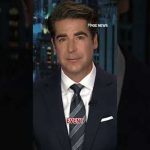Jimmy Kimmel has made his return to late-night television after being suspended for four days—a move that exposes the glaring double standard often at work in Hollywood and mainstream media circles. His temporary ousting, which came in direct response to controversial comments made on-air, shows how swiftly consequences can be handed down when the public outcry grows loud enough. Yet any honest observer can see that accountability in the entertainment industry is far from evenly distributed. Some figures are shielded; others, like Kimmel this time, are briefly benched for optics.
Free speech in America should not mean freedom from consequences, especially for influential voices. Kimmel’s comments, coming at a time when the nation was already reeling from tragedy, were reckless and insensitive—prompting justifiable outrage from viewers across the political spectrum. It’s a simple truth: comedians and celebrities who use their platforms to take cheap political shots during periods of national mourning are more interested in scoring points than uniting or comforting their audience. Kimmel’s plight underscores the need for greater personal responsibility from those gifted a public megaphone.
Yet what’s most disturbing is the deep hypocrisy that pervades the industry. Compare Kimmel’s brief suspension to the non-reaction when similar or even worse offenses are committed by other Hollywood insiders—particularly if their politics align with prevailing left-wing orthodoxy. The elites play favorites and the rules shift accordingly: some transgressors are canceled, others are quietly protected or even celebrated. This lack of consistency sows distrust among everyday Americans and erodes public confidence in the fairness of both Hollywood and the media that covers it.
The media response has been predictably divided. Right-leaning outlets have rightly focused on the issue of bias and accountability, while leftist networks scramble to downplay the incident or frame it as a win for “free speech.” This divergence is a symptom of a greater crisis—one in which the press often picks and chooses which stories to amplify based on ideological convenience, rather than journalistic integrity. Far too many “journalists” act as narrative managers instead of truth tellers, conveniently ignoring stories that contradict the preferred worldview of their colleagues and corporate backers.
Going forward, the lesson for Kimmel and others in his position should be clear: with influence comes responsibility. Americans deserve to see their public figures display humility and seriousness, especially during solemn moments. Kimmel’s stumble could, if he’s honest, mark the beginning of a more measured, respectful approach to late-night comedy. But ultimately, it’s up to the wider entertainment industry to decide if it will operate by one set of rules for all—or continue its tradition of selective enforcement and glaring double standards.




